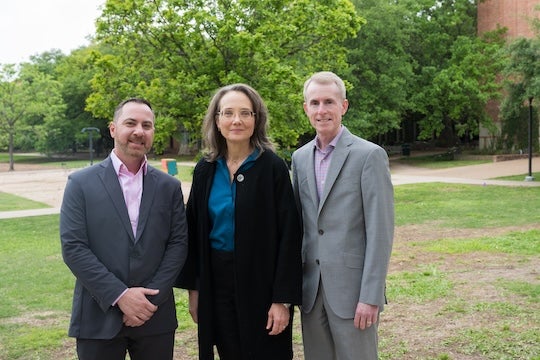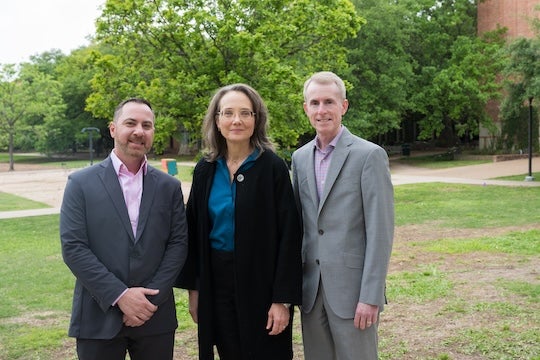Rice University’s Emerging Scholars Program (RESP) has received a five-year, $2.5 million grant from the National Science Foundation. The funding aims to bolster achievements in science, technology, engineering and mathematics (STEM) among students from under-resourced families and communities.
The grant will enable RESP to expand its reach and impact, offering increased support to its scholars via summer tuition scholarships, housing subsidies and research stipends. The number of scholars in the program will increase from 40 to 50 in Summer 2024 and to 60 in Summer 2025.
“Rice recognizes the challenges faced by students from low-income backgrounds,” said Angel Martí, chair and professor of chemistry, faculty director of RESP and principal investigator of the grant. “RESP aims to empower these students to achieve their academic and professional aspirations as future scientists and engineers.”

About 20% of Rice’s undergraduate population comes from families with limited financial resources with 12% being first-generation college attendees. These students often have less exposure to advanced math and science curricula in high school and encounter barriers to accessing essential resources vital for college success, making them more vulnerable to academic distress and attrition than their more affluent peers. They also face hurdles due to a lack of mentoring and guidance, according to experts.
“The grant will allow RESP, which sets the standard for supporting student success, to conduct high-quality research, findings from which we will disseminate broadly,” said Margaret Beier, professor and chair of psychological sciences and co-principal investigator on the grant. “What an amazing opportunity to impact student success in STEM within and beyond the hedges.”
RESP addresses disparities by providing an academic initiative tailored to assist students in adapting to the challenging pace, depth and rigor of the STEM curricula at Rice.
The program, which combines a six-week summer bridge program with ongoing personalized mentoring and support throughout the college journey, was established in 2012 by Professor Emeritus of Mathematics Mike Wolf and Senior Associate Provost Matthew Taylor. The latter is also a co-principal investigator on the grant.
“Low-income students, especially those who are first-generation, face unique obstructions to pursuing college STEM degrees,” Taylor said. “RESP and Rice University are committed to eliminating these obstructions and ensuring that all students have the opportunity to thrive and achieve their academic and professional aspirations.”
Through initiatives like RESP, Rice continues its commitment to fostering diversity, equity and excellence in STEM education.
This grant (No. 2322771) is administered by the National Science Foundation Division of Undergraduate Education. The content in this press release is solely the responsibility of the authors and does not necessarily represent the official views of the National Science Foundation.

